What Are Benzodiazepines?

For those who are not so familiar, benzodiazepines are basically sedatives drugs that have been prescribed around the world over several decades for a range of indications including:
- Anxiolytic (relief of anxiety)
- Hypnotic (promotion of sleep)
- Myorelaxant (muscle relaxation)
- Anticonvulsant (control fits convulsions)
- Amnesia (sedation for surgical procedures)
However, there also appears to be a great deal of “off-label” prescribing.
Top of Page
|
|
[active metabolite] |
|
Oral dosages (mg)3 |
| Alprazolam (Xanax) |
|
|
|
| Bromazepam (Lexotan, Lexomil) |
|
|
|
| Chlordiazepoxide (Librium) |
|
|
|
| Clobazam (Frisium) |
|
|
|
| Clonazepam (Klonopin, Rivotril) |
|
|
|
| Clorazepate (Tranxene) |
|
|
|
| Diazepam (Valium) |
|
|
|
| Estazolam (ProSom) |
|
|
|
| Flunitrazepam (Rohypnol) |
|
|
|
| Flurazepam (Dalmane) |
|
|
|
| Halazepam (Paxipam) |
|
|
|
| Ketazolam (Anxon) |
|
|
|
| Loprazolam (Dormonoct) |
|
|
|
| Lorazepam (Ativan) |
|
|
|
| Lormetazepam (Noctamid) |
|
|
|
| Medazepam (Nobrium) |
|
|
|
| Nitrazepam (Mogadon) |
|
|
|
| Nordazepam (Nordaz, Calmday) |
|
|
|
| Oxazepam (Serax, Serenid, Serepax) |
|
|
|
| Prazepam (Centrax) |
|
|
|
| Quazepam (Doral) |
|
|
|
| Temazepam (Restoril, Normison, Euhypnos) |
|
|
|
| Triazolam (Halcion) |
|
|
|
| Non-benzodiazepines with similar effects4,5 |
|
|
|
| Zaleplon (Sonata) |
|
|
|
| Zolpidem (Ambien, Stilnoct) |
|
|
|
| Zopiclone (Zimovane, Imovane) |
|
|
|
| Eszopiclone (Lunesta) |
|
|
|
-
Half-life: time taken for blood concentration to fall to half its peak value after a single dose. Half-life of active metabolite shown in square brackets. This time may vary considerably between individuals.
-
Market aim: although all benzodiazepines have similar actions, they are usually marketed as anxiolytics (a), hypnotics (h) or anticonvulsants (e).
-
These equivalents do not agree with those used by some authors. They are firmly based on clinical experience but may vary between individuals.
-
These drugs are chemically different from benzodiazepines but have the same effects on the body and act by the same mechanisms.
-
All these drugs are recommended for short-term use only (2-4 weeks maximum).
Top of Page
|
|
Brand Names |
| Alprazolam | Alprox, Helex, Onax, Paxal, Restyl, Tafil, Xanor |
| Bromazepam | Bromam, Bromaze, Brazepam, Lectopam, Lexaurin, Lexotanil, Lexilium, Rekotnil, Somalium |
| Chlordiazepoxide | Angirex, Elenium, Klopoxid, Libotryp, Librax, Libritabs, Mesural, Multum, Novapam, Risolid, Silibrin, Sonimen Tropium |
| Clobazam | Onfi, Urbanol |
| Clonazepam | Clonex, Clonotril, Iktorivil, Kriadex, Linotril, Naze, Paxam, Petril, Ravotril, Rivatril |
| Clorazepate | Novo-Clopate, Tranxilium |
| Diazepam | Antenex, Apaurin, Apozepam, Apzepam, Hexalid, Pax, Stedon, Stesolid, Valaxona |
| Estazolam | Eurodin |
| Flunitrazepam | Hipnosedon, Flunipam, Fluscand, Rohydorm, Ronal, Vulbegal (also known as Narcozep, Rohypnol, Rohipnol, Roipnol, or in the vernacular, simply Roofies) |
| Flurazepam | Dalmadorm |
| Halazepam | Alapryl, Pacinone |
| Ketazolam | Anseren, Ansieten, Ansietil, Marcen, Sedatival, Sedotime, Solatran, Unakalm |
| Loprazolam | Havlane, Sonin, Somnovit (also known as Triazulenone) |
| Lorazepam | Lorabenz, Lorenin, Lorsilan, Orfidal, Tavor, Temesta |
| Lormetazepam | Loramet, Pronoctan |
| Medazepam | |
| Nitrazepam | Alodorm, Arem, Dumolid, Insoma, Mogadon, Nitrados, Nitrazadon, Nitrosun, Ormodon, Paxadorm, Pacisyn, Remnos, Somnite |
| Nordazepam | Madar, Stilny, Vegesan (also known as Desoxydemoxepam, Nordiazepam and Desmethyldiazepam) |
| Oxazepam | Alepam, Alopam, Medopam, Murelax, Noripam, Opamox, Oxabenz, Oxapax, Oxascand, Ox-Pam, Praxiten, Purata, Seresta, Sobril, Vaben, Zaxpam |
| Prazepam | Centrac, Demetrin, Lysanxia, Mono Demetrin, Pozapam, Prasepine, Prazene, Reapam, Trepidan |
| Quazepam | Dormalin |
| Temazepam | Temaze, Tenox |
| Triazolam | Apo-Triazo, Hypam, Rilamir, Trilam |
| Non-benzodiazepines with similar effects |
|
| Zaleplon | Andante, Starnoc |
| Zolpidem | Ambien CR, Hypnogen, Intermezzo, Nytamel, Sanval, Stilnox, Sublinox (Canada), Xolnox, Zoldem, Zolnod, Zolsana |
| Zopiclone | Rhovane, Ximovan, Zileze, Zimoclone, Zopitan, Zorclone |
| Eszopiclone |
Top of Page
| Generic Names | Brand Names |
| Bretazenil | |
| Brotizolam | Dormex, Lendormin, Noctilan, Sintonal |
| Camazepam | Albego, Limpidon, Paxor |
| Cinolazepam | Gerodorm |
| Clotiazepam | Clozan, Distensan, Trecalmo, Rize, Rizen, Veratran |
| Cloxazolam | Akton, Lubalix, Olcadil, Sepazon |
| Delorazepam | Dadumir (also known as chlordesmethyldiazepam) |
| Etizolam | Depas, Etilaam, Etizest, Etizola, Pasaden, Sedekopan |
| Ethyl Loflazepate | Meilax, Ronlax, Victan |
| Fludiazepam | Erispan |
| Flutoprazepam | Restas |
| Haloxazolam | Somelin |
| Midazolam | Dormicum, Dormonid, Hypnovel, Versed |
| Nimetazepam | Erimin |
| Oxazolam | Nebusn, Toccata |
| Phenazepam | (also known as Fenazepam, Bonsai, Bonsai Supersleep) |
| Pinazepam | Domar, Duna |
| Premazepam | |
| Pyrazolam | |
| Tetrazepam | Clinoxan, Epsipam, Myolastan, Musaril, Relaxam, Spasmorelax |
| Tofisopam | Emandaxin, Grandaxin |
NB: Benzodiazepines and similar drugs are so numerous that they are basically uncountable.
See this link at Wikipedia for a few more…
Top of Page
There is in fact a very large number of differing diazepam conversion rates available from a wide variety of different sources. Ever wondered why?
Addictive Medicine Specialist, Dr. Graeme Judson explains as follows:
“The rate used for converting Diazepam equivalents tends to differ from source to source. This is because individual variation in clinical responses to “equivalent” doses can vary. So close monitoring of patient response to substitution is necessary when converting from one Benzodiazepine to another.”
Top of Page
A large number of benzodiazepines are available. There are major differences in potency between different benzodiazepines, so that equivalent doses vary as much as 20-fold. These differences in strength have not always been fully appreciated by doctors.
Top of Page
The Committee on Safety of Medicines and the Royal College of Psychiatrists in the UK concluded in various statements (1988 and 1992) that benzodiazepines are unsuitable for long-term use and that they should in general be prescribed for periods of 2-4 weeks only.
Top of Page
In response to comments regarding definitions of “dependency” and “addiction”, Prof. Ashton has kindly provided the following explanation.
Dear Wayne,
Language/words are often confusing. Many benzo-dependent users in England use the phrase 'involuntary benzo addiction' meaning doctor's prescription-induced dependency. The All Parliamentary Group in the House of Commons used the acronym APPGITA meaning All Parliamentary Group for Involuntary Tranquilliser Addiction until recently.
But I do not see any real difference between drug addiction (however caused) and drug dependence (however caused). I don't think anyone goes out deliberately to self-cause addiction or dependence - even a recreational heroin user.
You did well to use ‘dependence/addiction’ on your website.
Best wishes, Heather
However, in order to avoid offending those who have suffered at the hands of their doctors, I have decided to use the term: "Doctor induced dependency (Iatrogenic drug damages)."
Top of Page
- Could your prescription be a type of benzodiazepine or similar drug?
- How addictive are benzodiazepines?
- Could you (or someone you know) be dependent / addicted?
- Do you know what to do if you are dependent / addicted?
- Does your doctor have adequate knowledge?
- Have you received proper informed consent?
- Have you received proper monitoring (for potential forming of dependency)?
- Are medication package inserts reliable?
- How does the (legal) benzo problem compare to cases of illegal drug use?
- How do these problems affect people who have have never taken benzos?
- Who’s responsible for these problems?
- What needs to be done to improve the situation?
- How difficult is it to pursue a compensation case (litigation)
- What are dependency and withdrawal like? (for unfamiliar general public)
Top of Page
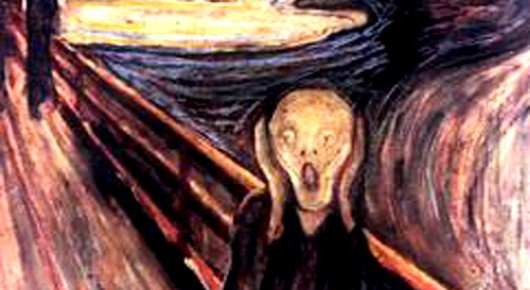
Withdrawal can also be protracted lasting for months or years.You wouldn’t wish it on your worst enemy!
Benzodiazepine withdrawal is a severe illness. The patients were usually frightened, often in intense pain, and genuinely prostrated. The severity and duration of the illness are easily underestimated by medical and nursing staff, who tend to dismiss the symptoms as "neurotic." In fact, through no fault of their own, the patients suffer considerable physical as well as mental distress (See Benzodiazepine Withdrawal: An Unfinished Story).

- Benzodiazepines (BZs) are the most widely prescribed drugs for anxiety, stress and sleep. Also prescribed for depression (see point 13 below), pain, muscle relaxation and much-much more...
- The Committee on Safety of Medicines and the Royal College of Psychiatrists in the UK concluded in various statements (1988 and 1992) that benzodiazepines are unsuitable for long-term use and that they should in general be prescribed for periods of 2-4 weeks only (See The Ashton Manual).
- The evidence suggests that benzodiazepines are no longer effective after a few weeks or months of regular use, so when prescribed for regular use beyond this, the risks can outweigh any potential benefits.
- Experts say BZs can be more addictive than heroin. Prescribing beyond the recommended period can result in doctor induced dependency and associated injuries / damages.
- Withdrawal can be like hell lasting for months, or even many years (protracted withdrawal syndrome).
- When tolerance develops, “withdrawal” symptoms can appear even though the user continues to take the drug. Thus the symptoms suffered by many long-term users are a mixture of adverse effects of the drugs and “withdrawal” effects due to tolerance (See The Ashton Manual).
- Tolerance doesn’t always develop across all symptoms. Someone might develop tolerance to the hypnotic (promotion of sleep) effects but not to the anxiolytic (anxiety relief) effects, or they might develop tolerance to some symptoms of anxiety and not others. Tolerance to the various actions of benzodiazepines develops at variable rates and to different degrees (See The Ashton Manual).
- There is no minimum dose, for example tolerance and dependence have been observed after the regular use of 2.5-5mg of diazepam.
- Withdrawal is different for each individual and depends on many individual factors.
- BZs can cause the very symptoms they are intended to treat and withdrawal symptoms generally tend to consist of a mirror image of the drugs’ initial effects. Symptoms are often intensified and accompanied by the appearance of totally new symptoms that were not present before the treatment began (See The Ashton Manual. Also see how to identify tolerance and how to differentiate withdrawal symptoms from original symptoms based on a medical report from my litigation case).
- Withdrawal is not a smooth consistent process. Symptoms characteristically wax and wane, varying in severity and type with wave-like recurrences (See The Ashton Manual).
- BZs have different potencies which is important to consider when switching from one kind to another, reducing etc.
- BZs don’t mix well with other drugs, substances, alcohol etc. They have additive effects which can be lethal (See 2016 news). They can also potentiate the effects of some drugs. As Boston Medical Center epidemiologist, Traci Green, stated: “One opioid plus one benzo doesn't equal the effect of two in the individual... It's like one plus one equals four, or six.” (See article)
- Antibiotics can sometimes aggravate withdrawal symptoms and the quinolones actually displace BZs from their binding sites on GABA-receptors. These can precipitate acute withdrawal in people taking or tapering (See The Ashton Manual).
- In 1988 the Committee on Safety of Medicines in the UK recommended that “benzodiazepines should not be used alone to treat depression or anxiety associated with depression. Suicide may be precipitated in such patients”.
- Depressive symptoms are common both during long-term benzodiazepine use and in withdrawal (anti depressants also have problems – see SSRI Stories and Rxisk).
- If taking an antidepressant drug as well as a benzodiazepine it is best to complete the benzodiazepine withdrawal before starting to taper the antidepressant.
- In some cases, over prescribing of these types of drugs can form a gateway to actual abuse. When this happens, unsuspecting individuals are often punished twice. Firstly by the failings of the medical systems, and then by the judicial system; without the root cause ever being addressed.
- Recent studies associate prolonged BZ use with irreversible damages. (Also see The Ashton Manual Supplement).
- Repeated (incorrect) withdrawals can result in kindling, making each successive attempt more difficult, so a slow appropriate withdrawal from the outset is very important.
- It is not unusual to experience flashbacks and recurrences of apparent benzodiazepine withdrawal symptoms years after a successful withdrawal and a return to normal health.
- Social costs include: unemployment, violent crime, suicides, hospital cuing, domestic disharmony, accidents and much-much more (See Effects on Us All).
- Experts have been lobbying governments for decades for stricter controls, but to no avail.
- There are an estimated 1.5 million people suffering from doctor induced BZ drug dependency in England alone (with antidepressants now a major problem) − the number worldwide must be staggering.
- It is dangerous to abruptly stop or quickly reduce these drugs.
- Anyone thinking about stopping should consult The Ashton Manual and their doctor. Beware that doctors may know very little at best, but their cooperation may be necessary. Please show them The Ashton Manual after reading it yourself.
Also consider this extract from The Ashton Manual:
“Facilities for benzodiazepine dependent people need to be developed. Detoxification units, dealing with dependence on alcohol and illicit drugs, are not appropriate for prescribed benzodiazepine users who have unwittingly become dependent through no fault of their own.
Such places usually withdraw the drugs too rapidly and apply rigid “contract” rules which are quite unsuitable for benzodiazepine patients struggling with withdrawal symptoms.
Much needed are clinics specialising in benzodiazepine withdrawal where clients can receive individualised, flexible, understanding and supportive counselling.”
Look no further than Luke Montagu’s story (CEP co-founder): “The first night Luke checked in, staff at the clinic took his clonazepam away...”
Top of Page
"There is an epidemic in the making"
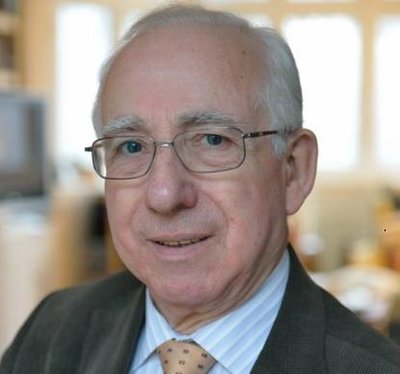
Professor Malcolm Lader: Emeritus Professor of Clinical Psychopharmacology, Institute of Psychiatry, University of London, England, Adviser to the World Health Organisation on drugs used in psychiatry (Ran a Benzodiazepine Withdrawal Clinic in London and has published more than 100 papers on the subject of benzodiazepines).
Experts say, compared to other addictive drugs, benzodiazepines are some of the most difficult to withdrawal from.
“It's more difficult to withdraw people from benzodiazepines than it is from heroin – it just seems that the dependence is so ingrained and the withdrawal symptoms you get are so intolerable that people have a great deal of problem coming off. The other aspect is that with heroin usually the withdrawal is over within a week or so. With benzodiazepines a proportion of patients go on to long-term withdrawal and they have very unpleasant symptoms for month after month and I get letters from people saying that it can go on for 2 years or more. Some of the tranquilliser groups can document people who still have symptoms 10 years after stopping.” (Source: Professor Malcolm Lader, BBC Radio 4, Face the Facts, broadcast on March 16, 1999)
In 1978, Prof. Lader called these drugs "the opium of the masses" because of the very high prescribing rates. In 1981 he warned that in the context of tranquilliser addiction "there is an epidemic in the making" and in 1988 he stated that this was the biggest medically-induced problem of the late 20th Century (Source: http://www.benzo.org.uk/lader2.htm).
And guess what? Nothing's changed...See "Who's Responsible?"
Top of Page
Who's next?

Prescription benzodiazepine addiction / dependency is a worldwide problem that affects all of us in one way or another. You should read this section.
Top of Page
Does your doctor understand enough about benzodiazepines? >>>
Could you (or someone you know) be suffering from dependency? >>>
Do you know what to do if you are suffering from dependency >>>
WARNING
- Any information given on this site should not be substituted for the advice of a physician who is well-informed about benzodiazepine dependency and withdrawal.
- All information given here is therefore to be followed at your own risk (See Disclaimer).
- Abrupt cessation of benzodiazepines may be very dangerous. Always consult your prescriber if you are considering making any changes.

The primary language of this website is English. Japanese appears as translations only (except for some original court documents).
These translations have been done by many different translators including me. Therefore, there are differences in quality and styles.
Please understand that I am not native Japanese and subsequently there are parts that may sound unnatural in Japanese.
Don’t think benzos are dependence forming on prescription doses?
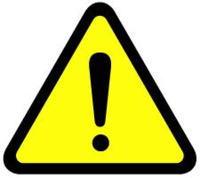
Think again!
“Tolerance and dependence can develop if benzodiazepines are used regularly for longer than 2-4 weeks. There is no minimum dose, for example tolerance and dependence have been observed after the regular use of 2.5-5mg of diazepam.”
Professor Heather Ashton: Emeritus Professor of Clinical Psychopharmacology, University of Newcastle upon Tyne, England
THE WRITING IS
ON THE WALL
for benzodiazepine use

Dr Andrew Byrne
Redfern NSW Australia
Benzodiazepine Dependence, 1997
“If any drug over time is going to just rob you of your identity [leading to] long, long term disaster, it has to be benzodiazepines.”

Dr John Marsden,
Institute of Psychiatry, London
November 1, 2007
“Benzos are responsible for more pain, unhappiness and damage than anything else in our society.”

Phil Woolas MP,
Deputy Leader of the House of Commons,
Oldham Chronicle, February 12, 2004
“The benzodiazepines are probably the most addictive drugs ever created and the vast army of enthusiastic doctors who prescribed these drugs by the tonne have created the world's largest drug addiction problem.”

The Drugs Myth, 1992
“If there's a pill, then pharmaceutical companies will find a disease for it.”

Jeremy Laurance,
The Independent, April 17, 2002.
“To rely on the drug companies for unbiased evaluations of their products makes about as much sense as relying on beer companies to teach us about alcoholism.”

Marcia Angell MD
(Former) Executive Editor New England Journal of Medicine
“It is more difficult to withdraw people from benzodiazepines than it is from heroin.”

Professor Malcolm H Lader
Institute of Psychiatry London
BBC Radio 4, Face The Facts
March 16, 1999
“Withdrawal symptoms can last months or years in 15% of long-term users. In some people, chronic use has resulted in long-term, possibly permanent disability.”

Professor C Heather Ashton
DM, FRCP,
Good Housekeeping, 2003
“Clearly, the aim of all involved in this sorry affair is the provision of justice for the victims of tranquillisers.”


Each one of us has a different experience of withdrawal.
The duration and degree of intensity can vary depending on the individual and there are many reasons for this.

Some parts of this website still have not been translated into Japanese. If anyone (native Japanese) would like to help on a volunteer basis, please contact mentioning the part you would like to translate. Thank you.
This page has been set up to give readers the opportunity to share their comments.

If you wish to send a message of your own please do so by sending an email through the contact page.
Alternatively, you can use the Benzo Case Japan facebook page.
The Ashton Manual contains expert advice on benzodiazepines and how to withdrawal written by world renowned expert Prof. Heather Ashton.

The withdrawal schedules provided in the manual are only intended as "general guides". Each person's experience of withdrawal is unique and the course of withdrawal depends on many factors.
Did You Know?
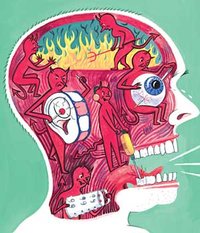
Tolerance doesn’t always develop across all symptoms.
For example, someone might develop tolerance to the hypnotic (promotion of sleep) effects but not to the anxiolytic (anxiety relief) effects, or they might develop tolerance to some symptoms of anxiety and not others. Tolerance to the various actions of benzodiazepines develops at variable rates and to different degrees (See The Ashton Manual).
It was difficult to get any relief from the ongoing symptoms
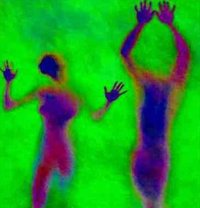
Unlike injuries where you may get some relief from adjusting your posture etc, with drug dependency in my case, the pain was both mental and physical and ran 24/7 regardless…
“Benzodiazepine addiction is a terrible affliction; these people are not drug addicts but they have become hooked on repeat prescriptions of tranquillisers.”

PM David Cameron
October 23, 2013












